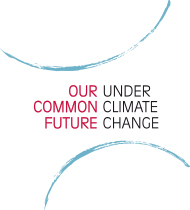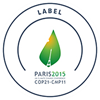Organizers:
- Laboratoire des RadioIsotopes- LRI, Universit� d'Antananarivo, RadioAgronomie, Antananarivo, Madagascar
- Institut de recherche pour le D�veloppement- IRD UMR Eco&Sols;, Antananarivo, Madagascar and Montpellier, France
- Ministry of Higher Education and Scientific research (MESupRES) , Antananarivo, Madagascar
- Conservation International- CI, Antananarivo, Madagascar
- Groupe Th�matique sur le Changement Climatique-GTCC, Antananarivo, Madagascar
- Bureau National de Coordination du Changement Climatique (BNCCC) within the Ministry of Environment, Ecology, Sea and Forests� (MEEMF)
Location :� Panorama Hotel, Antananarivo, Madagascar
Expected number of participants : 100-250
Nature of participants :� scientist, policy maker, NGO, soci�t� civil, local community
Keywords : Climate Change, Agriculture, Forests, Society
Keynote speakers :
- Z. Rabefitia Ministry of meteorology, Antananarivo, Madagascar
- T. Razafimbelo Laboratoire des RadioIsotopes, Antananarivo, Madagascar
- JL. Chotte IRD, UMR Eco&Sols;, Montpellier, Madagascar
- MOA. Representative Ministry Of Agriculture, Antananarivo, Madagascar
- J. Ratsirarson University of Antananarivo, Antananarivo, Madagascar



